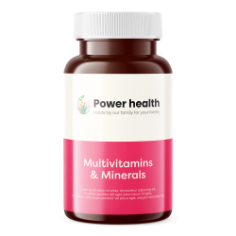Hormones play a crucial role in maintaining our overall health and well-being. These powerful chemicals, produced by various glands, act as messengers that regulate many bodily functions, from metabolism and growth to mood to reproductive health.
Understanding hormone health is vital for achieving a balanced and healthy life.
The Role of Hormones
Hormones are responsible for a wide range of bodily functions:
- Metabolism: Hormones such as insulin and thyroid hormones regulate how our body uses energy.
- Growth and Development: Growth hormone and hormones like estrogen and testosterone are crucial during puberty and for maintaining muscle and bone mass.
- Reproductive Health: Hormones like estrogen, progesterone, and testosterone play key roles in reproductive health.
- Mood and Cognitive Function: Hormones such as serotonin and dopamine influence mood, sleep, and mental clarity.
Common Hormonal Imbalances
Hormonal imbalances can lead to various health issues, including:
- Thyroid Disorders: Hypothyroidism (underactive thyroid) and hyperthyroidism (overactive thyroid) can cause weight changes, fatigue, and mood swings.
- Diabetes: Insufficient insulin production or action leads to high blood sugar levels, causing diabetes.
- Menopause and Andropause: Changes in sex hormone levels can lead to symptoms like hot flashes, mood swings, and decreased libido.
- Polycystic Ovary Syndrome (PCOS): An imbalance of reproductive hormones can cause irregular periods, infertility, and other health problems in women.
Maintaining Hormonal Balance
Maintaining hormone health involves a combination of lifestyle choices and, sometimes, medical interventions. Here are some strategies to keep our hormones balanced:
Balanced Diet: A diet rich in whole foods, including fruits, vegetables, lean proteins, and healthy fats, supports hormone production and function. Avoiding processed foods and sugar can also help maintain balance.
Regular Exercise: Physical activity helps regulate hormones like insulin and endorphins. Aim for at least 30 minutes of moderate exercise most days of the week.
Adequate Sleep: Quality sleep is crucial for hormone regulation. Aim for 7-9 hours of sleep per night to support your endocrine system.
Stress Management: Chronic stress can lead to elevated levels of cortisol, a hormone that can disrupt other hormonal functions. Practices such as meditation, yoga, and deep-breathing exercises can help manage stress.
Supplementation: Sometimes, diet alone isn't enough to maintain optimal hormone health. Supplements can be beneficial.
Power Health offers natural supplements that can aid in maintaining healthy hormone levels.
When to Seek Help
If you suspect a hormonal imbalance, it's important to consult with a healthcare professional. Symptoms such as unexplained weight gain or loss, chronic fatigue, mood swings, and irregular menstrual cycles should not be ignored. Early diagnosis and treatment can prevent more serious health issues down the line.
Hormone health is fundamental to overall well-being. By understanding the role of hormones and taking proactive steps to maintain balance, we can support our body's natural functions and improve our quality of life.
A balanced lifestyle with a focus on diet, exercise, sleep, and stress management is the cornerstone of maintaining healthy hormones. Stay informed, stay proactive, and prioritising hormone health contributes to a vibrant and healthy life.












